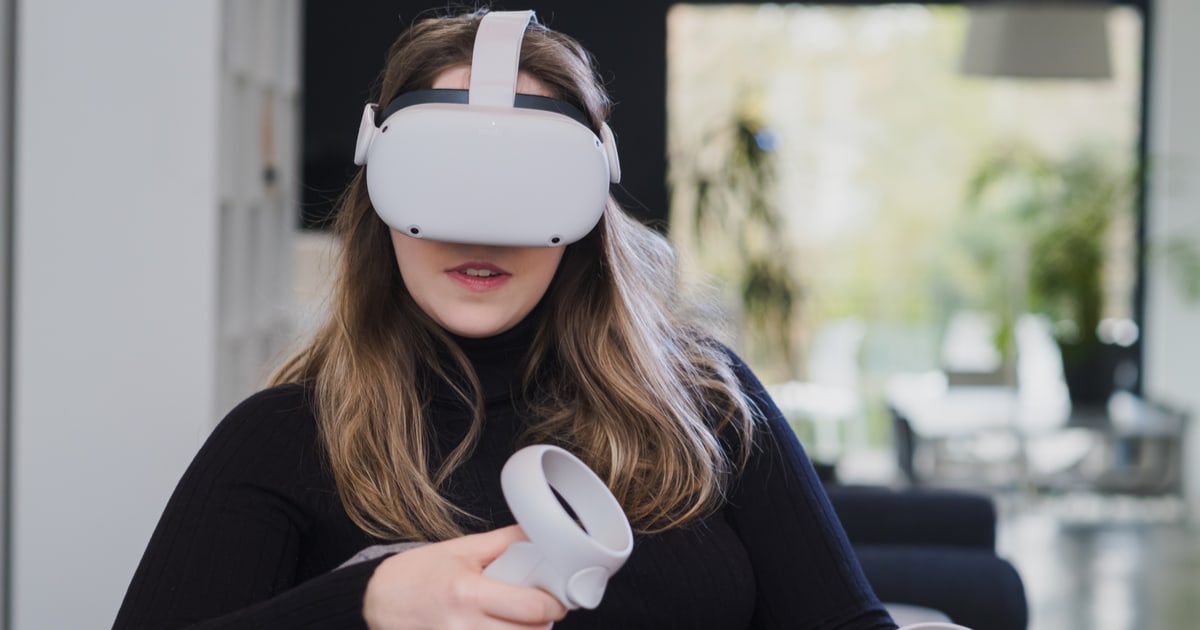The COVID-19 lockdown has dramatically changed our lives. This is especially true in our work lives, since many of us find ourselves doing our jobs remotely. This has meant a rise in technology that brings us together even when we’re apart. After all, we still need ways to have those all-important conference calls. That’s where Zoom, Google Meet, and others have stepped in. Zoom’s latest competitor, Horizon Workrooms, adds a step of reality to the experience. The question is, can we really trust VR video conferencing, given who’s at the heart of it?
Horizon Workrooms Brings to Life VR Video Conferencing
Facebook has recently unveiled a very interesting look into its plans for helping foster collaboration in the future. Its new competitor to zoom adds virtual reality to the conference call. With Workrooms, Facebook has created a video conferencing app that uses a VR headset to provide you and others an immersive experience.
Built around the Oculus Quest 2, Horizon Workrooms offers natural movement in your virtual meeting. It allows folks to mirror their desktop or laptop as a virtual workstation, and it even identifies some of the most popular keyboards to show them in your virtual space. It makes your virtual meeting look very similar to the days before the pandemic, when you might take your laptop into a meeting room.
A New Experience in Remote Collaboration
This new software is available as a free beta, and Time’s Peter Allen Clark has already taken it for a test drive. What he found is a virtual reality gathering space unlike almost anything else available.
With Horizon Workrooms, your meeting space is a virtual office. Everyone is depicted by the cartoon avatar tech Facebook has been adding to Oculus over the years. The sensors in the Oculus Quest 2 allow for very impressive hand tracking and more. According to Clark, he used simple, mostly responsive, hand gestures to join a meeting, set up a room, or even display his computer screen.
The avatar technology in Workrooms also includes what Clark describes as “surprisingly good lipsyncing.” He says that when someone is talking, you can almost read their avatar’s lips. Of course, this doesn’t come without its problems. It’s easy to get distracted by the tech and find yourself staring at your coworkers’ avatars when you really shouldn’t be.
The Wrench In the Gears of an Impressive Collaboration Tool
There is one major problem with this otherwise impressive virtual meeting software. It is made by Facebook. Using Workrooms means the chance of giving Facebook access to even more of your information than you may already allow.
Joining in the VR work room requires a Horizon Workrooms account, as well as an Oculus account. To have an Oculus account, you have to have a Facebook account. That means three separate accounts to make the most of the app.
For me, it keeps circling back to the Facebook factor. Yes, I use Facebook, but mainly as a necessary evil. The social media network has been getting more and more scrutiny lately. It has been accused of allowing misinformation surrounding the 2020 election spread. Facebook has been criticized for not removing false information about COVID-19. The network remains a prolific source of hate speech and extremism.
Even before all that came to be, there was the problem of your privacy on Facebook. To me, that is the biggest concern. Facebook’s privacy settings are challenging for the most tech savvy people to navigate. Facebook insists that the software will not transfer any of your conversations or materials to the social media network. Each press release states “Facebook and third-party apps do not access, view or use these images or videos to target ads”.
Unfortunately, Facebook has reversed course on various privacy issues so many times in the past. Even folks who thought they didn’t have Facebook accounts have unfortunately found themselves on the social media network. I don’t know if I would trust the business with what should be confidential discussions and materials. Don’t get me wrong, Horizon Workrooms looks like a fantastic tool. I just wish it were being developed by a more trustworthy organization.

Jeff:
Great review, it adds further context to Peter Allen Clark’s assessment.
The words, ‘It is made by Facebook’ are enough to cause a healthy heart seize up and make one’s blood run cold. Indeed, the mere mention of Facebook is enough to provokes in me a Bela Lugosi – like Dracula response to a crucifix https://www.youtube.com/watch?v=twmr0tf35eA .
And then, there is this. ‘Facebook and third-party apps do not access, view or use these images or videos… to target ads’ (the … are mine). Oh. So how will they (ab)use my data/content this time?
If I were discussing anything proprietary in a virtual meeting, for which attendees had to first sign a non-disclosure agreement, this platform would be about as welcome as a Facebook portal in my bedroom.
Not. Going. To. Happen.
I totally agree. If I ever get my hands on an Oculus Quest 2 setup, I may install it just to test it out…but I certainly wouldn’t use it for more than evaluation purposes.